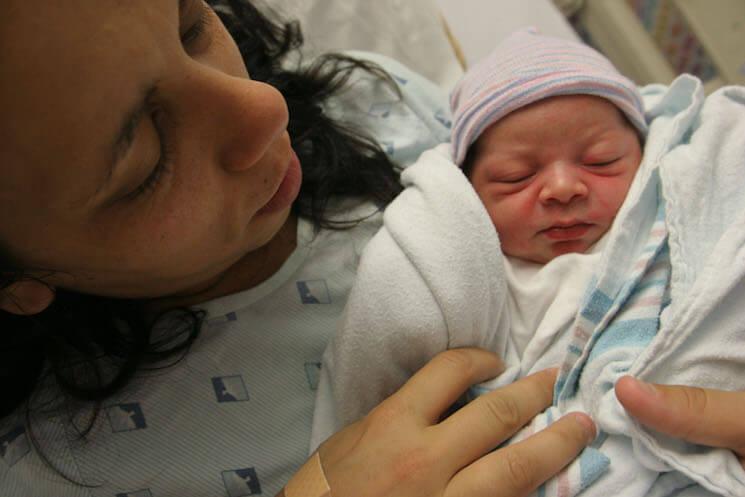Why public assistance for children should address what happens before birth

Many of the public assistance programs to help low-wage workers in the United States rest on the benefits the programs provide to children. There’s rough but broad agreement that the children of low-wage workers shouldn’t be punished for the circumstances of their birth. That’s why programs such as Temporary Assistance for Needy Families are for the children. Or consider the Earned Income Tax Credit, which is more generous for workers with children.
Focusing on children in low-income families can have huge benefits for children and our society as a whole, as Dylan Matthews details over at Vox. But maybe these programs and our thinking about the long-term effects of inequality on children are starting a bit late in the game. Perhaps we should be putting more emphasis on what happens before birth. There’s increasing evidence that the effects of poverty and income inequality start even before a child is born.
A new paper released by the National Bureau of Economic Research shows just how much the circumstances before a child’s birth can affect inequality down the line. The paper, by Claudia Persico and David Figlio of Northwestern University and Jeffrey Roth of the University of Florida, looks at the effects of exposure to environmental toxicants during childhood. Specifically, they examine what happens when children lived near a Superfund site—an area designated by the Environmental Protection Agency for cleanup—in Florida during the late 1990s and early 2000s. To gauge any causal effects of living near toxicants, the researchers look at the difference between siblings—one child who was conceived before or during clean up of the site and a younger sibling who was conceived later.
The effects are fairly significant. Children who were conceived before completion of the clean-up ended up doing much worse than their younger siblings. They were more likely to repeat a grade, have lower scores on standardized tests, and be suspended from school. And, the closer the mother of the child lived to the Superfund site, the stronger these effects were. Remember that these effects are all pre-natal. And it’s not just proximity to pollution that can have effects before a child’s birth. As Carolyn Johnson at Wonkblog writes, there’s also evidence that stress events for a mother during pregnancy can have long-term consequences for her child.
What’s the relevance of this kind of research for thinking about policymaking? Well, first of all, it’s a great argument for cleaning up Superfund sites and other polluted areas, which can have large detrimental effects on the lives of children. But in the broader sense, it’s a reminder that perhaps we shouldn’t think about public policy that helps children as something that should turn on once the child is born. Rather, the health and situation of the mother should be considered far before that date. Policies that help improve pre-natal health or the circumstances of the pregnant mother should be more strongly supported, and we should give more thought to policies that help low-income workers who are just starting a family.
